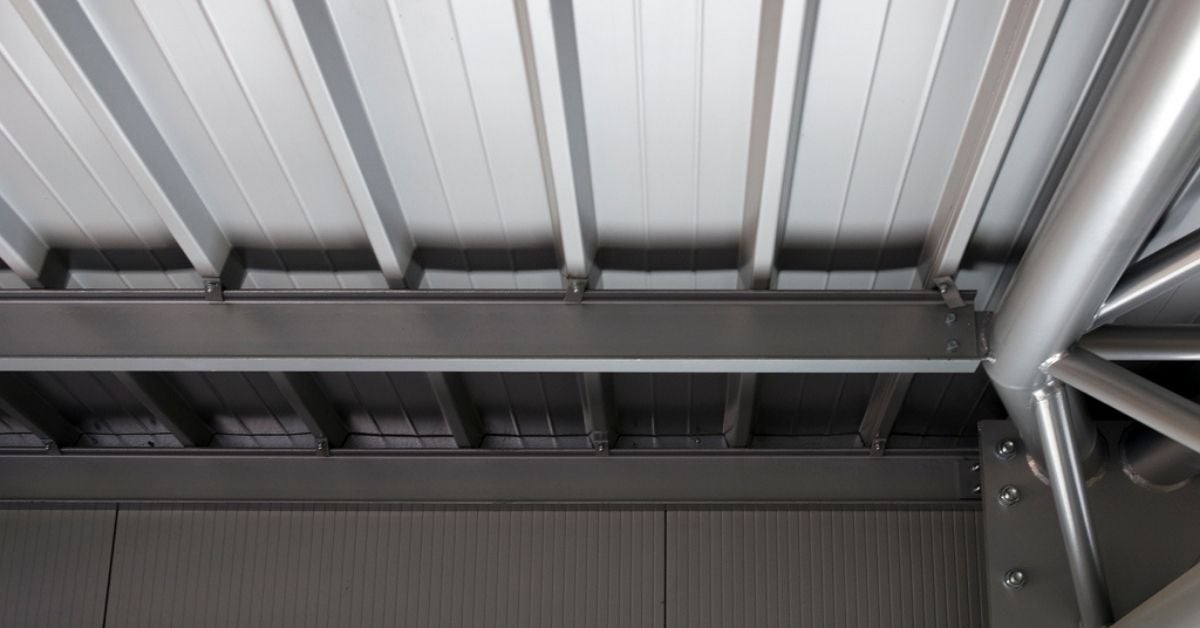Bs1d0 certification makes sandwich panels even more performing.
In fact, we are talking about a certificate that, by rewarding the reaction to fire of the insulating elements of organic nature, guarantees the maximum performance in terms of combustibility and smoke emissions.
Therefore, Bs1d0 certification assumes a crucial role in architecture, since it covers the needs of fire prevention design by ascertaining the adequate fire behaviour of the sandwich panels, in compliance with the provisions of European regulations.
But what are the necessary requirements to obtain this certificate?
Answering this question allows designers and builders to become more aware of a very sensitive issue in construction, which is represented by a single regulation at EU level.
Bs1d0 certification and Community regulations
The regulatory source of this certification is European. In particular, UNI EN 13501-1 standard “Fire classification of construction products and building elements” that sets the fire resistance parameters.
These parameters are measured by the laboratories and are notified during the tests that the construction elements undergo in order to benefit from this reaction to fire classification.
In detail, the rate of reaction to fire is assessed on the basis of the following characteristics:
- Flame propagation speed and maximum height;
- Extinguishing time;
- Damaged area;
- Presence of dripping.
These fire reaction values are the prerequisite that allow a sandwich panel to be marketed.
They refer to a specific fire reaction classification, from which one can deduce the requirements that an element must have in order to obtain Bs1d0 certification.
Bs1d0 certification, the meaning of the name
The aforementioned classification is set forth by the aforementioned UNI EN 13501-1 standard. This standard distinguishes the main classification from an accessory one.
The main classification refers to flammability. This defines a series of classes that go from A to F and can be distinguished as follows:
- A1, A2: these are non-combustible products, such as glass and metal;
- B: this group includes materials with a very limited contribution to fire;
- C, D, E: sections dedicated to the elements that contribute to the fire in a non-negligible manner;
- F: that combustible and easily flammable materials belong to.
The accessory classification, on the other hand, focuses on defining the values relative to smoke production and dripping.
The production of combustion smoke is indicated by the letter S (smoke), and by levels ranging from 1 to 3. The lower the value, the less smoke produced.
Dripping on the other hand is indicated by the letter d (dripping), on a scale ranging from 0 to 2. Here too, the lower level represents the lower production of leachate during combustion.
Bs1d0 certification requirements
The above allows us to understand what the requisites are for a sandwich panel to bear this certificate.
By breaking down the letters and numbers of the certificate name, we can say that the element must be:
- Composed of combustible but non-flammable material (letter B)
- Produce a quantity of combustion smoke that falls within the minimum parameter set by the standard (s1);
- In case of fire, does not generate dripping (d0).
Once these parameters are fulfilled, the sandwich panel is classified in accordance with Community legislation and can therefore be placed on the market with Bs1d0 fire reaction class
Market in which there are also sandwich panels designed by Isopan and enhanced by the application of Leaftechnology.
Leaf, innovation for Isopan panels
Leaf is the innovative solution that Isopan uses to increase the performance of its sandwich panels.
It is a technology that enriches these construction elements, allowing them to achieve excellent performance in terms of:
- Thermal insulation;
- Greater safety in case of fire;
- Eco-sustainability.
But it doesn’t stop here. With Leaf, Isopan panels obtain Bs1d0 certification.
This is thanks to the polyurethane foam, which is also appreciated for its fire behaviour as well as for its insulating capacity.
In fact, PIR insulation has such an ability to delay and limit the harmful effects of a possible fire, that it has been given the highest fire reaction recognition available on European level for these materials.
The range of sandwich panels that Isopan has associated the Leaf technology to is broad and diversified.
Discover more about Leaf, the technology for a building of greater value
FM Approvals certification
What has been said so far allows us to understand that Isopan sandwich panels are appreciable for all those design needs where the criteria of eco-sustainable construction play a central role.
On top of this, it should be added that these construction elements also bear the FM Approvals certification
Present for over a hundred years in the test and approval services sector, FM Approvals certifies the reliability of products and services intended for use in commercial and industrial facilities.
To obtain this certification, the products must fulfil the best standards regarding behaviour to:
- Fire;
- Wind;
- Hail;
- Debris;
It is not only the product that is checked, but also the producer. This is conducted through tests carried out at least once a year and regarding:
- The production plant;
- The management system;
- The relative quality control procedures.
These are therefore both objective and subjective tests, and when they are passed the products are certified by the US company.
As regards Isopan, FM Approvals has certified that the mineral wool and PIR sandwich panels offer guarantees of reliability in terms of:
- Protection of the building envelope and indoor rooms;
- Fire behaviour;
- Resistance to weathering.
Such certification further enriches the qualitative performance of Isopan panels, by which they represent constructive elements of considerable interest in a building sector that aims to respect the fundamental criteria of safety and environmental sustainability.


